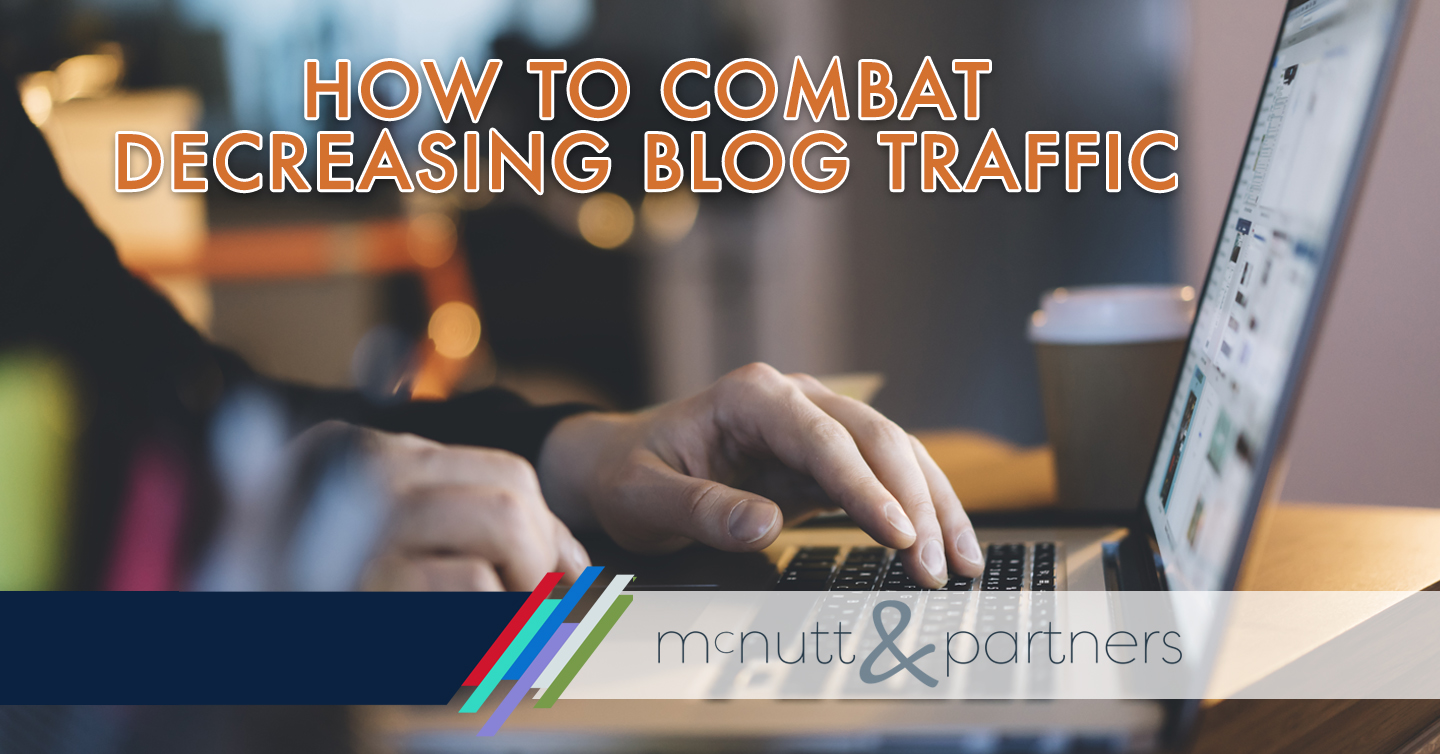Your brand’s blog serves a dual purpose—both to attract, inform and entertain your followers, and to drop points in your SEO bucket. But what happens when you notice a decline in your blog readership? Decreasing blog traffic can certainly pose a problem when it comes to your digital marketing goals. After all, what’s the point of putting time and effort into a blog that no one is reading? If you feel that your blog readership is undergoing a downward trend, there actions you can take to turn it around.
- Push it on social media. Especially if you’re launching a new blog, if you never promote it on social media, people may never know it’s there. Social media is one of today’s most powerful platforms for sharing your digital content with existing and potential followers. Every time you make a blog post, you should share it via your social media channels including Facebook, Twitter and Instagram. But don’t just share it on your company’s page—take it a step further and share it to your personal social media accounts as well.
- Boost your posts. Organic reach can only take you so far when it comes to social media posting—especially with Facebook’s recently-amended algorithm that promises to show users more content from family and friends and less from commercial entities. That’s why it’s important to carve out a portion of your marketing budget for sponsored, or “boosted” social media posts. Boosting is essentially paying to have more people exposed to your content (in this case, your blog posts), which in theory is a way to fight against decreasing blog traffic. Consult our quick guide to Facebook boosting
- Interact with other blogs. Commenting on other blog posts and blog post shares on social media will bring attention to your brand and in turn, to digital assets like your blog. Offer your input on a similar topic that you have blogged about, for example, but be sure to avoid sounding abrasive. Or, if you simply find that a post is interesting or well-written, leave a comment indicating so with the hope that you may receive similar feedback in return.
- Write more of what people like. Check the back end analytics of your blog to see which posts people responded particularly well to. Then, write more posts about that topic, or that are similar in format. For example, if people tend to like Q-and-A-formatted posts, then make it a point to include more of that style in your blogging rotation. Or, if people respond better to posts with pictures, then start including photos in most, if not all, of your blogs.
- Get personal. People like reading about real people, places and things. Some of our clients’ most popular blog posts are employee spotlights, featuring familiar faces from the businesses, or highlights on local culture and events. Even if your blog serves a very specific purpose, such as giving people advice about buying or selling a home, for example, you might consider mixing up your topics every now and then to include blogs with a more people-centric spin to them.
- Promote it via email. If you already have an email list to which you send out regular email blasts about special offers and events, use it to your advantage when facing decreasing blog traffic. (Or if you don’t have a list, now may be a good excuse to start.) Think about sending a preview for your upcoming blog, and include in the preview a snippet of information that will be featured. Or, you can send an ICYMI (In Case You Missed It) email that reviews the blogs you published over the past week or month. This will give followers yet another chance to click on your blog, in the event that it did not appear in their social media feeds recently.
- Encourage sharing. Enlist the help of your loyal followers to get the word out and increase your blog readership. Ask existing blog readers to share with their family and/or friends who they believe could benefit from the contents of your blog. Word-of-mouth can travel far!
- Check your page’s Google ranking. If you come across decreasing blog traffic, it could be a result of a declining Google search ranking. (Which does beg a sort of chicken-or-the-egg-type question.) If some other factor besides your blog caused your Google ranking to go down, then it could certainly be affecting your blog’s traffic. In that scenario, it’s time to take steps to enhance your website’s SEO.
If you need help boosting your SEO in an effort toward combatting decreasing blog traffic, or help with any of the tasks outlined above, the McNutt & Partners team can help. McNutt & Partners is a full-service advertising and digital marketing agency. Contact us today for your marketing needs! Call 334-521-1010, or visit our contact page.

